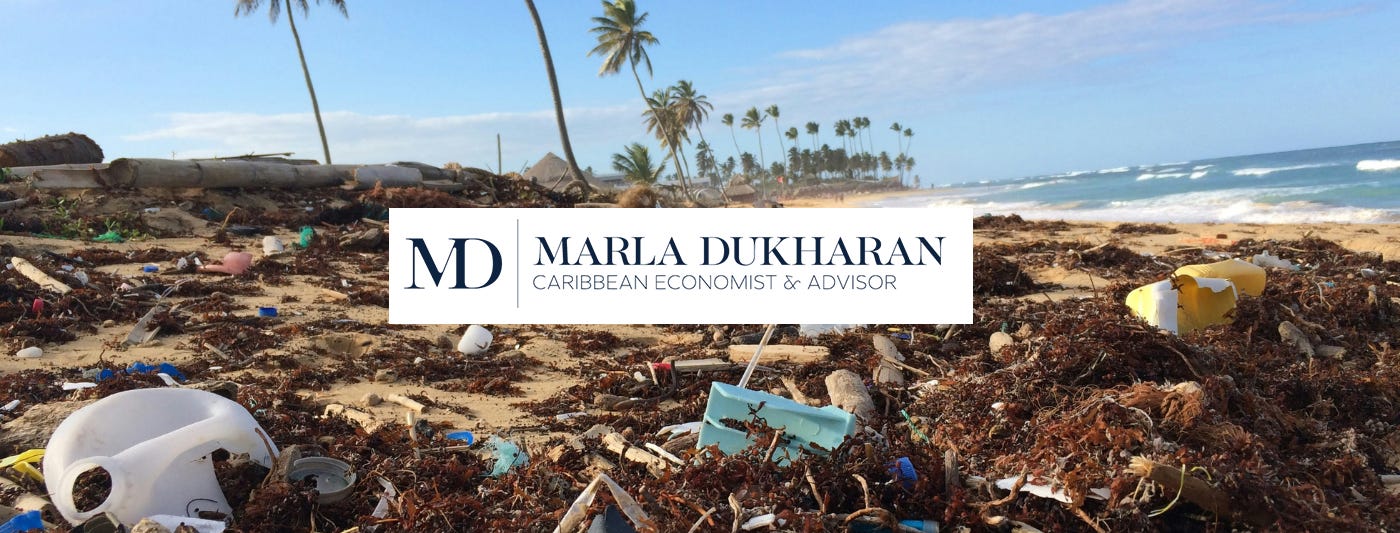FINANCING FOR DEVELOPMENT VIA CLIMATE REPARATIONS, NOT MORE LOANS

On July 23rd, the world’s highest court - the International Court of Justice (ICJ) - delivered a landmark Opinion on the Obligation of States regarding the climate crisis, which was spearheaded by Vanuatu, the most at-risk country to natural disasters. As outlined in this recent piece, this ICJ Opinion was highly anticipated and is crucial to the development policy trajectory of the Global South.
Key elements of the ICJ’s (non-binding but not inconsequential) Opinion are:
All states have obligations under international human rights law to respect and ensure the effective enjoyment of human rights by taking necessary measures to protect the climate system and other parts of the environment.
All states have a duty to prevent significant harm to the environment by acting with due diligence and to use all means at their disposal to prevent activities carried out within their jurisdiction or control from causing significant harm to the climate system and other parts of the environment, in accordance with their common but differentiated responsibilities and respective capabilities, and to co-operate with each other in good faith to this end.
198 States have an obligation to adopt measures to mitigate greenhouse gas emissions, to adapt to climate change, and to co-operate with each other to achieve the underlying objective of the UN Climate Change Convention (preventing “dangerous” human interference with the climate system).
Paris Agreement parties (the 198 above excluding Iran, Libya, and Yemen) have an obligation to act with due diligence in taking measures in accordance with their common but differentiated responsibilities and respective capabilities capable of making an adequate contribution to achieving the temperature goal of limiting global warming to 1.5°C above pre-industrial levels. These states have obligations of adaptation and co-operation, including through technology and financial transfers, which must be performed in good faith.
Certain states - those usually deemed high income / Global North - have additional obligations to take the lead in combating climate change by limiting their greenhouse gas emissions and enhancing their greenhouse gas sinks and reservoirs.
THE ICJ ESTABLISHES CLIMATE OBLIGATIONS AND CONSEQUENCES FOR INACTION OR HARMFUL ACTION
The ICJ further opined that a breach by a State of any obligations identified above: 1) constitutes an internationally wrongful act, 2) that the state is under a continuing duty to perform the obligation breached, 3) that the legal consequences resulting from the commission of an internationally wrongful act may include; a) cessation of the wrongful actions or omissions, if they are continuing; b) providing assurances and guarantees of non-repetition of wrongful actions or omissions, if circumstances so require; and c) full reparation to injured States in the form of restitution, compensation, and satisfaction. Importantly, the ICJ further noted that;
While climate change is caused by cumulative greenhouse gas emissions, it is scientifically possible to determine each State’s total contribution to global emissions, taking into account both historical and current emissions.
Each injured State may separately invoke the responsibility of every State which has committed an internationally wrongful act resulting in damage to the climate system and other parts of the environment.
The fact that the damage may be the result of concurrent causes is not sufficient to exempt a State from any obligation to make reparations.
Now, what does this all mean? Well, for the first time ever, we have an opinion delivered by the world’s highest court that acknowledges the fact that we can quantify the historical and current carbon emissions by State, so we can therefore quantify the extent of climate-driven damage by State, and the resulting obligation to make reparation.
This is especially powerful in the context of developing countries, and SIDS in particular, who are at once struggling with already unsustainable debt burdens and the rising cost of ‘development’, in the face of planetary boundaries and climate obligations, alongside mounting climate risks. In my view therefore, this ICJ opinion opens the door for affected states to actively pursue funding for development and climate adaptation from their (former) colonizers, who are historically the world’s worst polluters.


